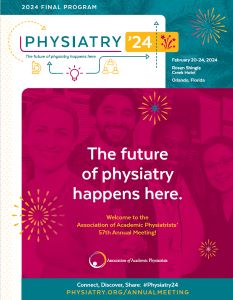Pain
Poster Gallery
825 - Potentially Fatal Consequence of Cervical Epidural Steroid Injections
Thursday, February 22, 2024
5:00 PM - 6:30 PM EDT
- JI
Joseph A. Ierulli, DO
Resident
Florida Atlantic University
Rockledge, Florida, United States - SG
Sean Goldman, DO
Doctor
Florida Atlantic University
Boca Raton, Florida, United States
Presenting Author(s)
Co-Author(s)
Case Diagnosis: Cervical Vertebral Osteomyelitis
Case Description: 85-year-old male with medical history of atrial fibrillation, hypertension, and cervical radiculopathy presented with several weeks of neck pain and weakness with new onset respiratory failure and dysphagia. He denied trauma but reported recently receiving cervical ESI’s for cervical radiculopathy. Admission MRI neck showed enhancing tissue in the dens, extending into bilateral facets and neuroforamina concerning for malignancy vs osteomyelitis. Labs showed MSSA bacteremia and leukocytosis. Due to high-risk biopsy location and cervical instability, patient elected to treat with appropriate IV antibiotics. Repeat labs showed resolution of bacteremia and leukocytosis, though clinical status continued to decline, leading to severe aspiration pneumonia and lack of PO intake with refusal of alternative feeding methods. Hospital course complicated by A-Fib with RVR refractory to medical therapy. Cervical instability prevented TEE for cardioversion. After a lack of improvement in expected timeline and rapid clinical deterioration, patient elected to pursue hospice and comfort care.
Discussions: There are an estimated 9 million epidural injections performed every year. CESI’s are a relatively safe and benign procedure with very rare serious adverse events. Rate of complications are up to 16.8%, the most common of which are neck pain, headache, insomnia, vasovagal reactions. More serious events are associated with dural punctures, contact with the spinal cord, and hemorrhage or infarction such as epidural hematomas or strokes of the brain or spinal cord, as well as cervical epidural abscess.
Conclusions: For patients receiving CESI’s, it's important to be diligent with technique and patient selection while being cognizant that every procedure carries a risk for adverse events. This presentation is unique in that the outcome was poor for a relatively benign and safe procedure. Early recognition of potential serious adverse events is crucial in receiving proper care.
Case Description: 85-year-old male with medical history of atrial fibrillation, hypertension, and cervical radiculopathy presented with several weeks of neck pain and weakness with new onset respiratory failure and dysphagia. He denied trauma but reported recently receiving cervical ESI’s for cervical radiculopathy. Admission MRI neck showed enhancing tissue in the dens, extending into bilateral facets and neuroforamina concerning for malignancy vs osteomyelitis. Labs showed MSSA bacteremia and leukocytosis. Due to high-risk biopsy location and cervical instability, patient elected to treat with appropriate IV antibiotics. Repeat labs showed resolution of bacteremia and leukocytosis, though clinical status continued to decline, leading to severe aspiration pneumonia and lack of PO intake with refusal of alternative feeding methods. Hospital course complicated by A-Fib with RVR refractory to medical therapy. Cervical instability prevented TEE for cardioversion. After a lack of improvement in expected timeline and rapid clinical deterioration, patient elected to pursue hospice and comfort care.
Discussions: There are an estimated 9 million epidural injections performed every year. CESI’s are a relatively safe and benign procedure with very rare serious adverse events. Rate of complications are up to 16.8%, the most common of which are neck pain, headache, insomnia, vasovagal reactions. More serious events are associated with dural punctures, contact with the spinal cord, and hemorrhage or infarction such as epidural hematomas or strokes of the brain or spinal cord, as well as cervical epidural abscess.
Conclusions: For patients receiving CESI’s, it's important to be diligent with technique and patient selection while being cognizant that every procedure carries a risk for adverse events. This presentation is unique in that the outcome was poor for a relatively benign and safe procedure. Early recognition of potential serious adverse events is crucial in receiving proper care.

